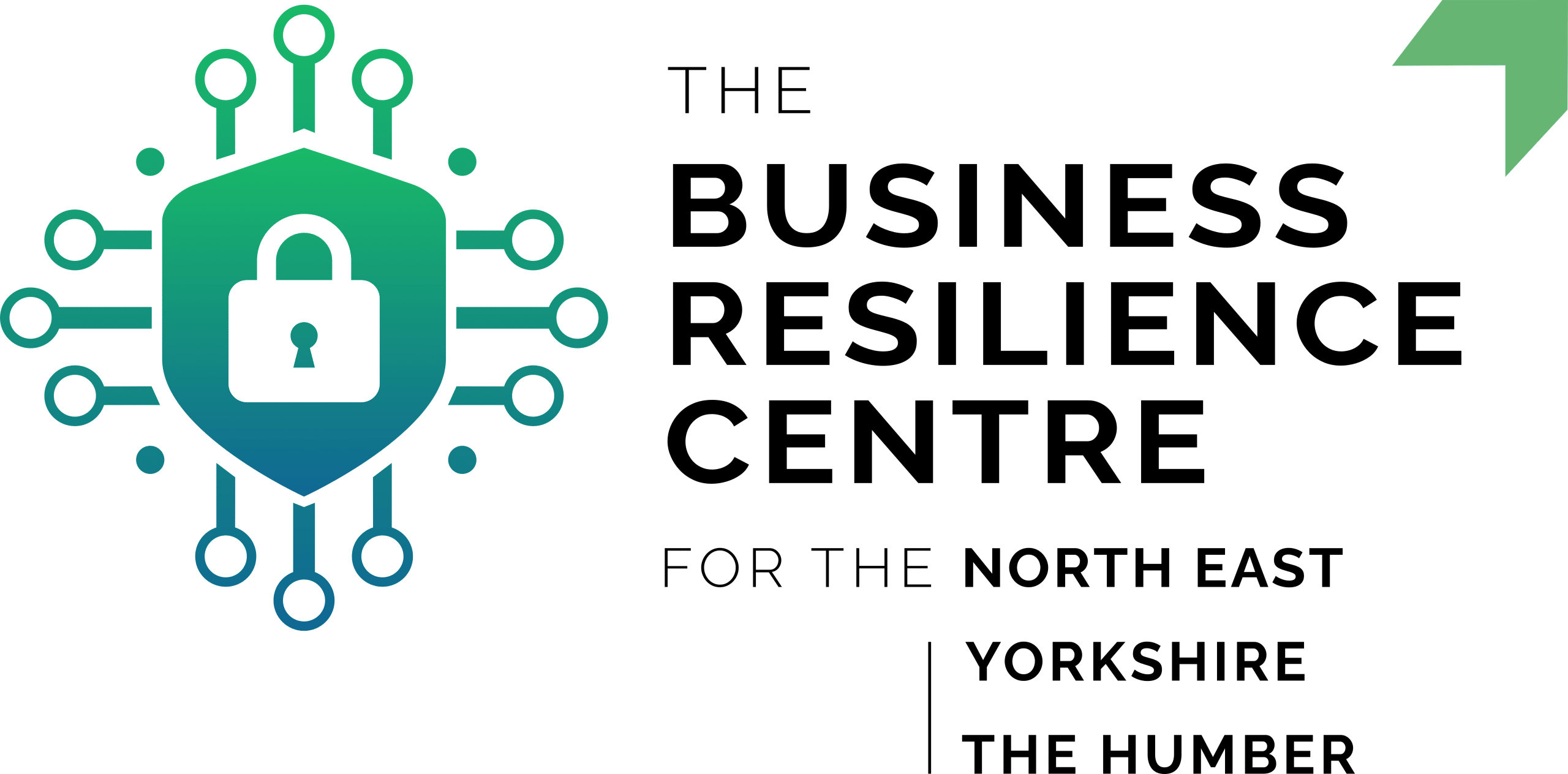Fraud is reaching epidemic levels in the UK and is becoming increasingly sophisticated; this includes employment and recruitment fraud. In this blog, we go into detail about the various types of recruitment fraud, the red flags to look out for in each case, and how to protect your business against them. So, first things first, what is classed as recruitment fraud?
Recruitment fraud encompasses a wide range of activities that would be considered fraud in relation to recruitment. These include:
- Reference fraud
- Qualification fraud
- Use of fake documents
- CV fraud
- Dual employment
- Immigration fraud
- Recruitment agency-based fraud
- Employment scams against the candidate
Read on to learn more about the various types of recruitment fraud, what to look out for, and how to prevent them in your business.
What is Recruitment Fraud?
Recruitment fraud, sometimes referred to as employment fraud or hiring fraud, is any act of fraud committed during the hiring process. This can be on the employer’s side or on the candidate’s side.
There are a number of consequences as a result of hiring fraud, which can be financially and reputationally damaging. The main challenge of employment fraud is that the various types of fraud being committed is ever changing, meaning that it’s difficult to combat.
Types of Recruitment Fraud
There are various types of employment fraud to watch out for as an employer, these include:
Reference Fraud
This includes providing fake references and the use of reference houses. Reference houses is a term used to describe organisations that provide fake references for an individual, at a cost. The details that the candidate provides in the reference will lead back to the reference house who will subsequently provide a fake reference.
This allows a candidate to create a fake job profile in order to give the impression that they are a suitably qualified, experienced candidate. They may use a reference house to cover a lack of experience, gaps in employment history, or to seem properly qualified for the role they are applying for.
What makes this difficult to spot is that the information is often very similar to legitimate organisations. Some reference houses even go as far as creating their own websites and offering fake bank statements for candidates to use if challenged.
What to Look For:
If you are suspicious about a candidate’s references, there are a few things that you can look out for:
- Does the email address look official and are there any spelling errors/additional characters added?
- Does the dates of the reference match the employment history shown on the CV?
- Does the referee’s job title suggest a position of responsibility?
How to Prevent It:
- Utilise a pre-verified employer/referee database to ensure the legitimacy of references, flagging suspected fraudulent reference providers.
- Obtain independent verification of employment and activity history through third party government and other authoritative sources like open banking, payroll data or HMRC lookups.
- Utilise integration with Companies House to check that the company being used for the reference exists.
Qualification Fraud
Qualification fraud is exactly what it sounds like – using fake or forged qualifications to gain advantage in education or employment. This could be acts such as:
- Creating or buying counterfeit certificates.
- Lying or exaggerating about academic achievements or credentials as part of the recruitment process.
Qualification fraud usually happens when a candidate doesn’t hold the required qualifications which are mandatory for a role.
What to Look For:
- An incorrect or false awarding organisation name.
- Incorrect qualification title.
- Poor quality of the document.
How to Prevent It:
Check the authenticity of certificates by:
- Consider outsourcing to employment screening specialists who will be aware of the common signs of fraud.
- Contacting the organisation that issued the certificate to confirm that the individual did complete the course.
- Train your hiring team on how to check the authenticity of certifications, for instance being able to spot common red flags.
Fake Application Documents
Similar to the above, some candidates use fake application documents to gain advantage in the recruitment process. This may include:
- Creating or buying fake professional registration documents.
- Obtaining fake proof of identity and address documents.
- Creating fake documentation to bypass industry-specific checks and standards.
Typically, the use of fake documents occurs when candidates don’t have the necessary documents that are required for a role. Some roles and industries have strict entry requirements which aren’t negotiable, meaning that some candidates may be tempted to use fake documents in order to apply.
What to Look For:
When checking candidates’ documents, there are a few red flags to look for:
- An incorrect or false issuing organisation name.
- Incorrect qualification title.
- Poor quality of the document, spelling errors or poor grammar.
How to Prevent It:
- Consider outsourcing to employment screening specialists who will be aware of the common signs of fraud.
- Train your hiring team on how to check the authenticity of certifications, for instance being able to spot common red flags.
CV-based Fraud
This includes intentionally falsifying information on a CV, usually employment history, qualifications, accreditations, awards and other recognition. Typically, candidates falsify the information on their CV for the following reasons:
- To make them seem more qualified/experienced than they are.
- Hiding a gap in employment.
- Hiding a period spent in prison.
- Exaggerating salary levels.
What to Look For:
- Lack of details and specificity.
- Gaps in employment history or references.
- Claims that can’t be verified.
- Inflated job titles or responsibilities.
How to Prevent It:
- Utilising services to independently verify employment and activity history through third party government sources and other authoritative sources like open banking, payroll data or HMRC Gateway data.
- Verifying educational and professional qualifications.
- Asking the individual to provide evidence of achievements, awards or recognitions.
- Train your hiring team on how to check the authenticity of certifications.
Dual Employment
Due to an increase in roles where working from home and hybrid working is an option, there has been a rise in dual working – the practice of working two jobs simultaneously. This typically breaches workplaces rules and contracts, especially where confidential and sensitive information is accessible.
What to Look For:
This is different to moonlighting or working part-time on the side. You might recognise signs such as those below. Although, it’s important to recognise that these may be signs of other issues to address, not necessarily dual working.
- Inconsistent availability.
- Lower productivity, consistently.
- Overuse of personal devices.
- Exhaustion and stress.
- Unexplained income or lifestyle changes.
How to Prevent It:
- Revise employee agreements/contracts which use language that restricts ‘dual employment’ and illustrates your organisation’s expectations.
- Seek references for all new starters which may highlight any secondary employment concerns.
- When screening a potential new starter, you could utilise application forms to carefully screen the individual’s current position and question them about their status pre and post employment.
- HMRC documents and open banking statements could be used to find out information on secondary employment.
Immigration Fraud
Immigration fraud is the process of illegally entering or staying in the country without the correct documentation. This can include the use of false or altered documents to support a visa application.
Examples of immigration fraud include:
- Entering without leave
- Overstaying
- Failing to observe the conditions of leave
- Forgery of documents
- Working outside of visa restrictions
How to prevent it:
There are three key ways to prevent immigration fraud:
- Digital checks using Identity Document Validation Technology (IDVT) via an Identity Service Provider (IDSP).
- Online/share code checks for those with a valid visa
- Manual/in-person checks – obtaining copies of original documents
Learn more about the right to work in the UK on the Government website.
Recruitment Agency-Based Fraud
Recruitment agency-based fraud is split into two categories; worker impersonation and the use of non-compliant agencies.
Worker impersonation via a recruitment agency (often temp agencies) usually occurs where the candidate is vetted by the agency for role suitability, but the candidate then sends someone in their place to complete assignments/shifts. This is sometimes classed as modern slavery as the person being paid for the work isn’t actually doing it.
Use of non-compliant agencies usually involves the use of agencies which do not follow industry standards. This results in substandard referrals to your business from identity and right to work checks not being properly conducted, referencing and qualifications not being checked, and a lack of knowledge of industry requirements.
How to Prevent It:
- Use a reputable recruitment agency that is registered with either the REC or APSCo.
- Require candidates to provide identification documents on arrival of their first shift.
- Insist that an ID badge is issued by the agency.
- Question the compliance checks that the recruitment agency has in place as part of your onboarding process.
However, it’s not just employers that are at risk of employment fraud, candidates can also be on the receiving end of recruitment scams.
Employment Scams
Employment scams typically involve a scammer impersonating a recruitment agency or employer, and luring victims in with promises of work that doesn’t exist. These scam recruiters often offer flexible working hours, the option to work from home, tempting salaries (usually in cryptocurrency), and other lucrative benefits.
Once the individual is engaged, the scammer will try to obtain money from them by making them pay for training or equipment needed for the job. Alternatively, the scam has been used to obtain personal data.
What to Look For:
Jobseekers should be aware of the top signs of recruitment scams that could result in financial loss or breach of personal data.
- Poorly written job adverts.
- Suspicious contact information.
- Unrealistic salary.
- Being asked for money.
- Illegitimate companies or email addresses.
- Non-UK web domains.
What to Do if You Get Scammed by a Fake Job
If you’ve fallen victim to a recruitment scam, we recommend following the below steps:
- Once you suspect a scam, stop all communication but make note of their details.
- Do not give any money or further details to the scammers.
- Report the scam to Action Fraud.
- Warn ActionFraud of where the recruitment scam can be found.
How Do I Report Employment Fraud in the UK?
In the UK, you can report employment or recruitment fraud to Action Fraud on their website, or at 0300 123 2040. Alternatively, you can seek advice from the Serious Fraud Office.
Stay Up to Date with NEBRC
For further guidance on protecting your business from hiring fraud, contact [email protected]. You can also stay up to date with the ever-changing digital landscape and security threats, by signing up for our free core membership. The NEBRC is a Police led non-profit organisation that seeks to educate, inform, and support businesses across the UK on how to protect their business online through good cyber security practices.

